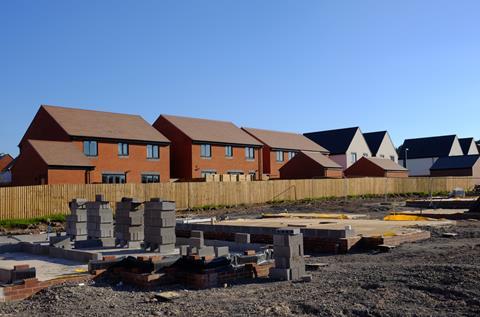Experts say government on only realistic course, despite recent paper which said there was no housing shortage in the UK

The government’s commitment to building 300,000 homes a year is likely to remain the main weapon in ministers’ armoury in the battle to solve the UK’s housing crisis, despite a key report recently claiming there was no shortage of housing in the country.
Last month the Tony Blair Institute published a paper, written by its executive director Iain Mulheirn, which claimed that increasing supply was not the answer to the country’s housing crisis.
However those with an interest in the housing sector have suggested alternatives to building more homes as a way of improving the situation – such as taxing housing wealth – are likely to be politically toxic and ultimately unworkable.
Toby Lloyd, ex-head of policy and housing development at Shelter and a former adviser to Theresa May during her premiership, argued that calls – from Mulheirn and others – to build affordable homes would only prove affordable for government if they were cross-subsidised by the construction of lots of private sector ones.
“The reality is that if we want to tackle housing problems, even though we know building more is an imperfect mechanism, all the other alternatives – like taxing housing wealth or socialising the private rented sector – are even more politically toxic,” he said.
“Building more is currently the least bad option we have, and this argument [against more supply] risks blowing a huge hole in the one thing that everyone can agree will help.”
Others agree – and indeed fear – that Mulheirn’s take on the housing shortage will fuel the case for anti-development campaigners for less building activity.
Market analyst Neal Hudson said Mulheirn’s argument was “so bullish, the danger is people will jump on his words to prove that no homes at all are needed.”
But arguments from the likes of Tony Blair Institute do serve to highlight the lack of any real clarity about what housing policy is designed to do.
Lloyd said all governments are “desperate” to avoid saying they want to bring prices down, while implying they will make it cheaper for those not on the ladder. And Neal Hudson agrees. “What is the end state we’re looking to get to?” he said.
“What is the optimum amount of housing and availability? Inevitably, there will be no one single view,” he added.











No comments yet